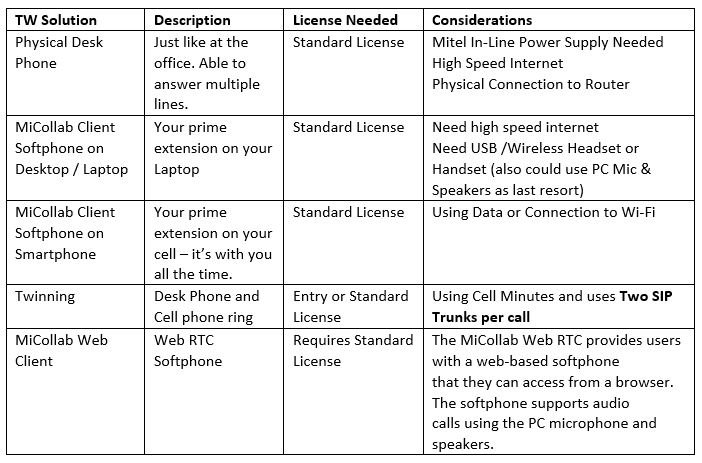Rapid Response Success Stories… DC Region Associations Act After Stay-at-Home Orders
Northern Virginia Cloud Voice Customer
When the Governor’s order went into effect, our team had to act fast. Our client had 100+ users in the office. They called us on Tuesday, and they wanted everyone working from home by Friday.
Already subscribed to TCI Host, our flexible, all-in-one cloud voice service, the busy association had built-in telework capabilities, but had always conducted their work in a traditional office environment.
Without missing a beat, our outstanding support team ensured everyone’s endpoints were programmed, tested and ready to support incoming calls from the association’s membership.
By Friday, the association’s busy office was empty, and every user was connected at home using their preferred device – whether they opted for a laptop softphone, an app on their smartphone, or a desktop office phone.
Maryland Mitel On-Premises System Customer
Another association just outside of DC in suburban Maryland, had 130+ users all connected in their office via an on-premises Mitel MiVoice platform. Most incoming calls came in on the main number and were distributed across multiple attendant consoles where calls were transferred across the organization.
When the stay-at-home order came down, the staff was able to quickly connect at home using a mix of plug-and-play Mitel Teleworker phones or MiCollab apps running on their laptops and smartphones.
Home-based attendants are still managing the high-volume flow of incoming calls using a completely PC-based call-handling setup with an intuitive graphical user interface that lets them know the ‘presence’ status of every user before they transfer the caller.
The association is delighted with their Mitel system and its teleworking capabilities – their employees are staying productive and their members are getting the support they need.
TCI is Ready to help
Whether your phone system is on-site or already in the cloud, when it comes to supporting your customers, our rapid response team can deploy and support the essential tools you need to work anywhere in these uncertain times.
Contact TCI today at (703) 321-3030 or info@tcicomm.com.



